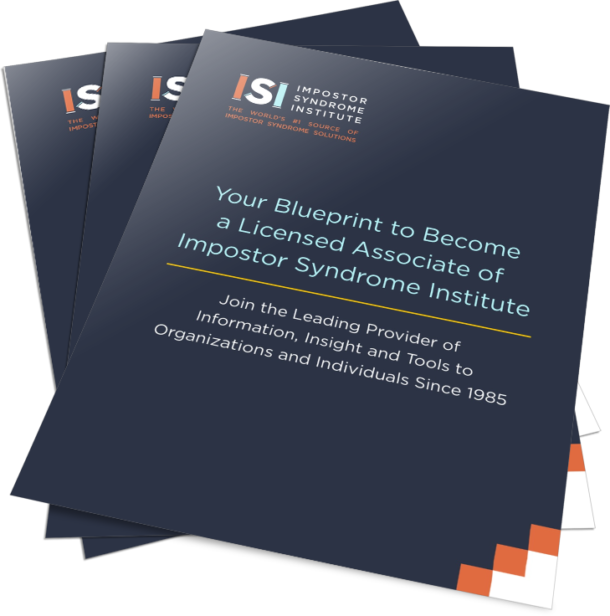
Are You an Impostor?
Phenomenon makes executives doubt their own abilities, skills
June 20, 2008
By Rachel Sams
You look poised. You speak with confidence. You get the job done right.Your colleagues have no idea you lie awake at night, afraid they’ll finally discover how incompetent you really are.
If you recognize yourself in those words, the culprit could be something called “the impostor phenomenon.” It’s the tendency of some high-achieving people to discount their accomplishments and fear they are less capable than others believe.
Psychologist Dr. Pauline Rose Clance and a colleague first coined the phrase 30 years ago, and Georgia-based Clance plans to reissue a 1985 book on the topic because she gets so many inquiries about it.
Clance says the impostor phenomenon occurs when a person’s idea of her abilities truly does not match up with the accomplishments on her resume. That leads her to fear that she will have a major failure in her job, which Clance says runs counter to another basic strand of psychology: Typically, when we succeed at a task once, we expect to have a good chance of succeeding at it next time.
Some experts estimate as many as 70 percent of people have this feeling of fraudulence at some point in their lives, while as many as 30 percent of people may experience it consistently. The impostor phenomenon, sometimes called the impostor syndrome, often surfaces along with a big change in someone’s professional life — like a promotion, taking on a big project, or being asked to do a high-profile presentation.
Struggling with feeling like an impostor prevents people from really enjoying their successes, which drains them of the energy they need for their job. “People begin to feel, what’s the use of working so hard, because I never feel a sense of accomplishment,” Clance said.
While everyone worries about failure sometimes, with the impostor phenomenon, the fear grows far out of proportion to the likelihood of failure — and can be crippling. The fear may lead people to hold back from giving their all to a project, turn down a promotion or even step down from their job.
Clance had a client who had advanced quickly at his company, but was afraid that if he showed the doubts he felt about some of his decisions, he would be seen as a failure. She worked to show him that his track record proved he could succeed, and it was OK to make some mistakes along the way. He recently got promoted and is enjoying his work, she said.
Many people who feel like impostors have unrealistic ideas of what it takes to be good at their jobs, said Dr. Valerie Young, a Massachusetts career expert who has a forthcoming book from Crown Publishing on the impostor syndrome. People may feel like impostors because they don’t always know the answer, but you don’t have to always have the answer to be successful — you just need to know how to find the resources to get the job done, Young said.
People with impostor syndrome tend to downplay their accomplishments, responding to compliments by saying “Oh, it was nothing,” or talking about where they went wrong, said Young. “It’s a protective device,” she says — people expect others to criticize them, so they rush to criticize themselves first.
“I think for young people who excel very quickly, this might be a very common leadership development phase,” said Susan Hahn, an executive coach at Swan Consulting in Arnold who has a psychotherapy background. To learn more about the phenomenon and how coaches can help people who are dealing with it, Hahn and a colleague recently did a 10-question survey of more than 100 businesspeople. The survey is continuing. Several people surveyed said they were surprised to see what a low opinion they had of themselves, and some said they were embarrassed to talk about the feeling with a stranger, Hahn said.
When Clance first began studying the impostor phenomenon, she expected to find that it affected more women than men. But feeling like an impostor seems to happen equally with both men and women, Clance said. Decades ago, men were less open to talking about it, but their experience of the phenomenon has come out through anonymous surveys, she said.
Experts say many people who feel like impostors are ashamed of their fears. But talking about the feelings with a trusted friend or mentor can help, because they can provide an outside perspective on your successes.
Kimberly Bowen, an executive career coach with Executive Career Designs in Arnold, says that if you find yourself feeling like an impostor, it’s important not to beat yourself up more for having the feelings. Just being aware of the phenomenon and taking an inventory of your accomplishments and skills can help you get a more objective view, she said.
Sheila Cox, an executive coach with Performance Horizons in Towson, has another suggestion: Get involved with a peer group — if you’re a vice president of marketing, join a networking group of people at the same level. When people see for themselves what kind of background and skills their peers have, it can help them realize that they really do measure up, Cox said.


